Sindh cabinet cancels registration of 4,693 NGOs
Extends date of computerised registration of arms licenses till December 31
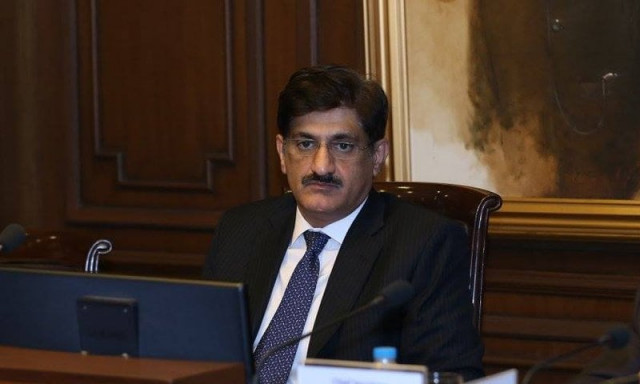
The meeting was chaired by Sindh CM Murad Ali Shah. PHOTO: PPP
The meeting, attended by ministers, special assistants and the CM's advisors, was informed about the last decision of the apex committee to keep vigil on NGOs. "Around 10,592 NGOS are registered in the province. We had issued notices to them to clarify their funding, performance and implementation on rules, but hardy 7,414 NGOs responded. After assessing their performance, we have cancelled the registration of 4693," said Adviser to CM on Information , Law and Anti-Corruption Barrister Murtaza Wahab while briefing the media outside the committee room of the Sindh Secretariat.
Govt to introduce unified policy for NGOs, NPOs
An official who was privy to the development told The Express Tribune that some NGOs have been receiving funding from international donors and indulge in anti-state activities.
Besides, the meeting decided to amend the rules and ensure transparency in the pension releasing process for retired government employees. "Biometric verification of all pensioners would be done in order to abolish ghost pensioners," said the spokesperson for CM House while referring to the meeting.
Sindh Bank
The performance of Sindh Bank also came under discussion during the meeting. The cabinet decided to grant three billion rupees to Sindh Bank. "Sindh Bank needs funds as all the accounts of its account holders have been frozen," said Wahab adding that the decision to change the Board of Governors of Sindh Bank was also made and the provincial government after consultation with other cabinet members has also decided to merge Sindh Bank and Sindh Leasing Company.
Prosecutor general appointed
Moreover, the cabinet accepted the resignation of the Sindh prosecutor general while approving the appointment of Advocate Dr Fayaz Shah as the new prosecutor general of Sindh.
Wahab who was accompanied by LG Minister Ghani, informed of his government's decision to abolish three per cent sales tax on print media. "CM has also directed the Sindh Revenue Board to immediately issue the notification in this regard. The decision has been taken in light of the financial crises being faced by media these days," he said.
Coal mining project
The meeting, which lasted for over eight hours, also approved coal mining expansion.
The energy department presented the expansion of coal mining as Phase-II of the project. Energy Minister Imtiaz Shaikh said that the provincial government, a major shareholder with 54.7 per cent shares, made the equity of $110.4 million. The Sindh Engro Coal Mining Company has embarked upon a plan to launch Phase-II of the project where mining capacity would be doubled to 7.6 MTPA. The cost of Phase-II has been estimated at $215.9 million, where the equity component is $67 million.
Renewal of expired leases
The cabinet was told that old leases granted by the defunct Karachi collector during 18th century for building purposes in the old city areas expired in 1962. The renewal of the said leases was made under the Bombay Revenue Code 1879 at a certain rate. These buildings are located at 23 different locations of the city where thousands of people reside.
The CM said that every year their leases were being renewed which was an unnecessary bother for the owners, therefore he constituted a committee under Revenue Minister Makhdoom Mehboob-uz-Zaman, with LG Minister Ghani, Wahab and Sindh Advocate-General as members, to review the existing law and propose new clauses so that the leases could be renewed once and for all for a given period.
Sindh Ombudsman
There has been a dispute in the past over the appointment of the provincial ombudsman. Despite the passage of the 18th Amendment, the Pakistan Peoples Party government allowed Muttahida Qaumi Movement Governor Dr Ishratul Ebad Khan to appoint the ombudsman. Now, the government has taken back these powers. In this connection, the cabinet observed that in Punjab and Khyber Pakhtunkhua the provincial ombudsman was being appointed by the CM but in Sindh the governor has the powers to appoint the ombudsman. The cabinet approved the amendment in The Establishment of the Office of Ombudsman for the province of Sindh Act 1991 (Act No.1 of 1992) by replacing the word Governor with the Chief Minister.
Govt refuses to register 42 NGOs
Computerisation of arms license
Home Secretary Abdul Kabir Kazi informed the cabinet that there were 1,055,476 arms licenses manually issued in the province. Despite extending dates for the computerisation five times, only 535,843 licensees have gotten their licenses computerised.
At this the CM said that the date for computerisation of licenses may be extended, for the sixth time, till December 31, 2019, after that all un-computerised licenses would be declared illegal and the arms would be confiscated. The cabinet approved the proposal.
School education reforms
Education Minister Sardar Ali Shah said that there were 49,103 schools in Sindh, of which 44,317 were primary, 2,693 elementary while there were 1776 high schools and 317 higher secondary schools. He admitted that there were only 11,308 schools or around 20 per cent schools, with toilets, boundary walls, electricity, drinking water and other basic facilities. He added that 11 per cent schools, around 5,922 have no facilities while 37,705 or 69 per cent schools with missing facilities.
He added that there were 7,611 shelter-less schools, 10,516 single room schools, 18,507 two-room schools. Moreover, he said, that there were 18,660 schools which were being run by a single teacher and 12,136 schools without any teachers and 11,441 schools with no enrolment - non-viable schools. Around 4.2 million children were out of school, said the education minister.
Education Secretary Qazi Shahid Pervaiz said that 90 per cent teachers of government schools were for arts subjects, and 10 per cent were science teachers. He said that efforts were being made to recruit science, maths and english language teachers.
The cabinet was told that 40,000 teachers have been given training but have not shown any visible changes in their teaching methods. Besides, the curriculum was out-dated and needed to be revised.
Disclosing his reform agenda, the education minister said that he has taken two steps - civil society dialogue at Hyderabad and Karachi and school profiling. He said that one or two-room primary schools located in close vicinity were being merged. His other reforms include the decentralisation of primary school management through clustering with one hub school having a Grade BS-17 headmaster, as well as plans to upgrade eligible primary schools to elementary schools and club middle schools with adjacent primary schools to make one elementary school.
The CM directed the education department to establish 300 model schools with the facilities of early childhood classes, transportation facility for female students and female teachers. The cabinet decided to run these schools through outsourcing model.
Published in The Express Tribune, August 4th, 2019.

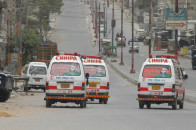
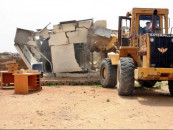

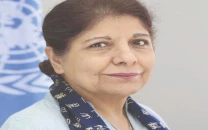
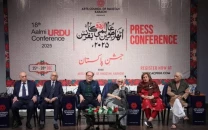


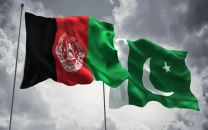


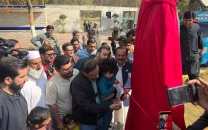







COMMENTS
Comments are moderated and generally will be posted if they are on-topic and not abusive.
For more information, please see our Comments FAQ